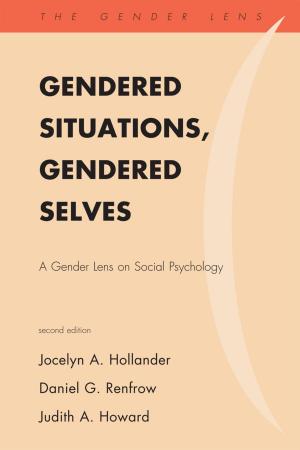One Hundred Days of Silence
America and the Rwanda Genocide
Nonfiction, Social & Cultural Studies, Political Science, International, International Relations| Author: | Jared A. Cohen | ISBN: | 9781461640400 |
| Publisher: | Rowman & Littlefield Publishers | Publication: | December 28, 2006 |
| Imprint: | Rowman & Littlefield Publishers | Language: | English |
| Author: | Jared A. Cohen |
| ISBN: | 9781461640400 |
| Publisher: | Rowman & Littlefield Publishers |
| Publication: | December 28, 2006 |
| Imprint: | Rowman & Littlefield Publishers |
| Language: | English |
One Hundred Days of Silence is an important investigation into the 1994 Rwandan genocide and American foreign policy. During one hundred days of spring, eight-hundred thousand Rwandan Tutsis and sympathetic Hutus were slaughtered in one of the most atrocious events of the twentieth century. Drawing on declassified documents and testimony of policy makers, Jared Cohen critically reconstructs the historical account of tacit policy that led to nonintervention. His analysis examines the questions of what the United States knew about the genocide and how the world's most powerful nation turned a blind eye. The study reveals the ease at which an administration can not only fail to intervene but also silence discussion of the crisis. The book argues that despite the extent of the genocide the American government was not motivated to act due to a lack of economic interest. With precision and passion, One Hundred Days of Silence frames the debate surrounding this controversial history.
One Hundred Days of Silence is an important investigation into the 1994 Rwandan genocide and American foreign policy. During one hundred days of spring, eight-hundred thousand Rwandan Tutsis and sympathetic Hutus were slaughtered in one of the most atrocious events of the twentieth century. Drawing on declassified documents and testimony of policy makers, Jared Cohen critically reconstructs the historical account of tacit policy that led to nonintervention. His analysis examines the questions of what the United States knew about the genocide and how the world's most powerful nation turned a blind eye. The study reveals the ease at which an administration can not only fail to intervene but also silence discussion of the crisis. The book argues that despite the extent of the genocide the American government was not motivated to act due to a lack of economic interest. With precision and passion, One Hundred Days of Silence frames the debate surrounding this controversial history.















